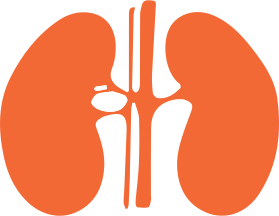The Annual offers the most comprehensive set of tests, repeated annually with no hidden fees and no insurance required.
The Mid Year test is conducted between annual tests, typically 3 to 6 months later. It allows you to compare results with previous tests to track changes over time.
Get tests as needed to focus on specific areas or retest everything. It's simple, with transparent and competitive pricing.
Our team from various specialties has thoughtfully chosen each of the following tests to offer you a comprehensive view of your evolving health. You can get the Whole Body Plan with 103 tests for $555 a year or the Whole Body Lite Plan with 69 tests for as low as $350 a year.
Helps assess heart health by indicating the balance between protective HDL and potentially harmful LDL cholesterol, guiding effective cardiovascular risk management.
Helps identify elevated levels that may lead to atherosclerosis, enabling early intervention to reduce the risk of heart disease and stroke.
Testing for large HDL particles helps evaluate the effectiveness of HDL in removing cholesterol from the bloodstream.
Assessing LDL pattern helps identify the size and density of LDL particles, which can indicate a higher risk of cardiovascular disease.
Measuring LDL peak size helps determine the predominant size of LDL particles, which can influence heart disease risk.
Helps detect elevated levels that can signal increased risk of heart disease and metabolic disorders, facilitating timely lifestyle or medical interventions
Provides a comprehensive measure of all potentially harmful cholesterol particles, offering a clearer picture of cardiovascular risk beyond just LDL cholesterol levels.
Testing hs-CRP helps identify inflammation in the body, which can indicate an increased risk of cardiovascular disease.
Testing HDL cholesterol helps evaluate the “good” cholesterol levels that protect against heart disease.
Measuring LDL particle number helps identify the number of LDL particles, which can indicate risk of atherosclerosis.
Testing for small LDL particles assesses the presence of smaller, more dense particles that may be more harmful to cardiovascular health.
Measuring medium LDL particles helps provide a more detailed understanding of LDL particle distribution and cardiovascular risk.
Testing total cholesterol provides a comprehensive overview of cholesterol levels in the blood, helping assess cardiovascular risk.
Measuring APO B levels indicates the number of atherogenic particles, helping assess cardiovascular risk.
Testing lipoprotein (a) helps evaluate the risk of cardiovascular diseases due to genetic factors and higher levels of this lipoprotein.

Testing estradiol helps assess reproductive and menstrual health and monitor hormone replacement therapy.
Measuring estrone levels aids in evaluating menopausal status and estrogen-related disorders.
Testing estriol is useful for monitoring fetal health during pregnancy.
Measuring FSH helps evaluate reproductive function and diagnose fertility issues.
Testing DHEA-S helps assess adrenal gland function and diagnose hormonal imbalances.
Measuring LH levels helps evaluate reproductive health and diagnose conditions related to ovulation and testosterone production.
Measuring progesterone levels helps evaluate ovulation, pregnancy status, and menstrual health.
Testing PTH helps assess calcium regulation and diagnose parathyroid disorders.
Measuring prolactin levels helps diagnose pituitary disorders and reproductive health issues.
Testing free and total testosterone helps assess male and female reproductive health, diagnose hormonal imbalances, and monitor testosterone replacement therapy.
Measuring SHBG helps evaluate the amount of bioavailable sex hormones, such as testosterone and estradiol.
Testing albumin helps assess liver function, nutritional status, and kidney health.

Testing total T4 helps assess overall thyroid hormone production and diagnose thyroid disorders.
Measuring free T3 levels helps evaluate active thyroid hormone availability and thyroid function.
Testing free T4 provides insight into unbound thyroid hormone levels, aiding in the diagnosis of thyroid conditions.
Testing iodine levels is crucial for evaluating thyroid function, as iodine is essential for thyroid hormone production. This add-on is not included in the $555 membership but can be discussed and included when you come in for your appointment.
Measuring copper levels can indirectly support thyroid function evaluation, as copper is involved in producing thyroid hormones. This add-on is not included in the $555 membership but can be discussed and included when you come in for your appointment.
Measuring TSH helps assess thyroid gland function and diagnose hypothyroidism or hyperthyroidism.
Testing for thyroid peroxidase antibodies helps diagnose autoimmune thyroid diseases, such as Hashimoto’s thyroiditis.
Measuring reverse T3 helps evaluate thyroid function and detect issues with thyroid hormone conversion.
Testing for thyroglobulin antibodies aids in diagnosing autoimmune thyroid disorders and monitoring thyroid cancer.
Testing selenium levels is important for thyroid health, as selenium is essential for converting thyroid hormones into their active forms. This add-on is not included in the $555 membership but can be discussed and included when you come in for your appointment.
Testing cortisol helps assess adrenal function and diagnose conditions like Cushing’s syndrome or Addison’s disease.
Testing for Insulin-like Growth Factor 1 (IGF-1) helps assess growth hormone levels and can be important in diagnosing growth disorders, acromegaly, or pituitary gland dysfunction. This add-on is not included in the $555 membership but can be discussed and included when you come in for your appointment.

Testing selenium levels helps evaluate nutritional status and antioxidant function, as well as diagnose selenium deficiency or toxicity. This add-on is not included in the $555 membership but can be discussed and included when you come in for your appointment.
Measuring aluminum levels helps assess exposure to aluminum, which can be toxic at high levels and linked to neurological conditions. This add-on is not included in the $555 membership but can be discussed and included when you come in for your appointment.
Testing for arsenic helps evaluate exposure to this toxic element, which can affect skin, lung, and other organ health. This add-on is not included in the $555 membership but can be discussed and included when you come in for your appointment.
Measuring antimony levels helps assess exposure to this toxic metal, which can have harmful effects on the heart and lungs. This add-on is not included in the $555 membership but can be discussed and included when you come in for your appointment.
Testing barium levels helps evaluate exposure to this element, which can be toxic and affect the gastrointestinal system and muscles. This add-on is not included in the $555 membership but can be discussed and included when you come in for your appointment.
Measuring bismuth levels helps assess exposure, particularly in relation to medical use or potential toxicity. This add-on is not included in the $555 membership but can be discussed and included when you come in for your appointment.
Testing cadmium levels helps evaluate exposure to this toxic metal, which can affect kidney function and bone health. This add-on is not included in the $555 membership but can be discussed and included when you come in for your appointment.
Measuring cesium levels helps assess exposure, which can have potential effects on the nervous system at high levels. This add-on is not included in the $555 membership but can be discussed and included when you come in for your appointment.
Testing gadolinium levels helps evaluate exposure, especially in people who have undergone MRI with gadolinium-based contrast agents. This add-on is not included in the $555 membership but can be discussed and included when you come in for your appointment.
Measuring germanium levels helps assess exposure, which is generally low in toxicity but can have health effects at high levels. This add-on is not included in the $555 membership but can be discussed and included when you come in for your appointment.
Testing lead levels helps assess exposure to this toxic metal, which can affect neurological development, particularly in children. This add-on is not included in the $555 membership but can be discussed and included when you come in for your appointment.
Measuring mercury levels helps evaluate exposure to this toxic metal, which can impact the nervous system and kidneys. This add-on is not included in the $555 membership but can be discussed and included when you come in for your appointment.
Testing nickel levels helps assess exposure, which can lead to allergic reactions and other health issues at high levels. This add-on is not included in the $555 membership but can be discussed and included when you come in for your appointment.
Measuring niobium levels helps assess exposure, though its health impacts are less well-known and typically related to industrial exposure. This add-on is not included in the $555 membership but can be discussed and included when you come in for your appointment.
Testing platinum levels helps evaluate exposure, often related to medical treatments like chemotherapy, or industrial exposure. This add-on is not included in the $555 membership but can be discussed and included when you come in for your appointment.
Measuring rubidium levels helps assess exposure, although it is generally considered non-toxic but can accumulate in the body. This add-on is not included in the $555 membership but can be discussed and included when you come in for your appointment.
Testing for thallium helps assess exposure to this highly toxic element, which can affect the nervous system and hair growth. This add-on is not included in the $555 membership but can be discussed and included when you come in for your appointment.
Measuring thorium levels helps evaluate exposure, particularly in industrial settings, as it is radioactive and can be harmful. This add-on is not included in the $555 membership but can be discussed and included when you come in for your appointment.
Testing tin levels helps assess exposure, which can be toxic at high levels and affect gastrointestinal and neurological health. This add-on is not included in the $555 membership but can be discussed and included when you come in for your appointment.
Measuring titanium levels helps assess exposure, though it is generally considered low in toxicity, commonly used in medical implants. This add-on is not included in the $555 membership but can be discussed and included when you come in for your appointment.
Testing tungsten levels helps evaluate exposure, which can have potential toxic effects on the heart and lungs. This add-on is not included in the $555 membership but can be discussed and included when you come in for your appointment.
Measuring uranium levels helps assess exposure, especially in regions with high natural uranium levels, which can affect kidney function and is radioactive. This add-on is not included in the $555 membership but can be discussed and included when you come in for your appointment.
Testing creatinine in random urine samples helps standardize the concentration of other substances measured in urine, providing a baseline for kidney function assessment. This add-on is not included in the $555 membership but can be discussed and included when you come in for your appointment.

Measuring total PSA helps screen for prostate health issues, including prostate cancer. This tests measures for both the level of PSA that is not bound to proteins and circulates freely in the blood.
We have a relationship with Galleri in order to perform your blood draw in order to be tested across a series of cancers.This add-on is not included in the $555 membership but can be discussed and included when you come in for your appointment.

This test is often used when patients experience immediate and severe reactions to food. Using IGE testing for food allergies tests for the triggering mechanism that causes the cells (and basophils) to release their chemicals referred to as IgE or Immunoglobulin E. This add-on is not included in the $555 membership but can be discussed and included when you come in for your appointment.
Through Oxford Medical, Any Lab Test Now can provide the only test that quantifies the intensity of food sensitivities by measuring the changes in the liquids to solids ratio of your blood. This add-on is not included in the $555 membership but can be discussed and included when you come in for your appointment.
This test is often used when patients experience delayed reactions to food. Using IGG testing for food allergies tests for the triggering mechanism that causes the cells (and basophils) to release their chemicals referred to as IgG or Immunoglobulin G. This add-on is not included in the $555 membership but can be discussed and included when you come in for your appointment.
Testing HbA1c helps assess long-term blood glucose control and diagnose diabetes.
Measuring uric acid levels helps diagnose gout and monitor kidney function.
Testing glucose levels provides a snapshot of blood sugar levels, aiding in the diagnosis and management of diabetes.
Measuring insulin levels helps assess pancreatic function and diagnose insulin resistance or hypoglycemia.
Testing calcium levels helps assess bone health and diagnose conditions related to calcium metabolism.
Testing copper levels as a nutrient helps assess its role in various bodily functions, including iron metabolism, nervous system health, and the formation of red blood cells. This add-on is not included in the $555 membership but can be discussed and included when you come in for your appointment.
Measuring ferritin levels helps to evaluate how iron stores in the body and diagnose anemia or iron overload.
Testing TIBC helps assess the body’s capacity to transport iron and diagnose iron-related disorders.
Measuring iron levels helps diagnose and monitor conditions like anemia and iron overload.
Testing iron saturation percentage provides insight into the proportion of transferrin-bound iron, aiding in the diagnosis of iron deficiency or overload.
Measuring magnesium levels helps evaluate metabolic and neuromuscular function and diagnose magnesium deficiencies or excesses.
Testing zinc levels helps assess immune function, wound healing, and overall nutritional status.
Measuring homocysteine levels helps evaluate cardiovascular risk and diagnose vitamin B deficiencies.
Testing vitamin D levels helps assess bone health, immune function, and the risk of vitamin D deficiency.

Testing albumin levels helps evaluate liver function, as the liver is responsible for producing albumin; low levels can indicate liver disease or damage
Measuring AST levels helps assess liver function and diagnose liver damage or disease.
Testing total bilirubin levels helps evaluate liver function and diagnose conditions like jaundice or bile duct obstruction.
Measuring ALT levels helps assess liver health and diagnose liver damage or inflammation.
Testing ALP levels helps evaluate liver and bone health and diagnose liver or bone disorders.
Measuring total protein levels helps assess overall protein status, liver function, and nutritional health.
Testing GGT levels helps evaluate liver function and detect liver damage, particularly related to alcohol consumption or bile duct issues.

Measuring BUN helps assess kidney function and diagnose kidney or liver disease.
Measuring chloride levels helps assess electrolyte balance and diagnose metabolic disorders.
Testing creatinine levels helps evaluate kidney function and detect renal impairment.
Testing potassium levels helps evaluate electrolyte balance and diagnose conditions affecting the heart and muscles.
Measuring sodium levels helps assess electrolyte balance and diagnose disorders related to sodium metabolism.
Calculating the albumin/globulin ratio helps evaluate liver function and diagnose protein disorders.
Testing for microalbumin in urine helps detect early kidney damage, especially in people with diabetes.
Calculating the BUN/creatinine ratio helps assess kidney function and diagnose conditions like dehydration or kidney disease.
Testing calcium levels helps assess bone health and diagnose conditions related to calcium metabolism.
Measuring globulin levels helps assess immune function and liver health.
Measuring total protein levels helps assess overall protein status, liver function, and nutritional health.

Testing CO2 levels helps assess acid-base balance and respiratory or metabolic conditions.
Testing calcium levels helps assess bone health and diagnose conditions related to calcium metabolism.
Testing potassium levels helps evaluate electrolyte balance and diagnose conditions affecting the heart and muscles.
Measuring sodium levels helps evaluate electrolyte balance and diagnose disorders related to sodium metabolism.
Measuring chloride levels helps assess electrolyte balance and diagnose metabolic disorders.

Testing WBC levels helps assess immune function and diagnose infections, inflammation, or blood disorders.
Measuring RBC levels helps evaluate overall blood health and diagnose anemia or other blood disorders.
Testing hemoglobin levels helps assess the oxygen-carrying capacity of the blood and diagnose anemia.
Testing MCHC helps evaluate the concentration of hemoglobin in red blood cells and diagnose various types of anemia.
Testing platelet count helps evaluate blood clotting ability and diagnose disorders related to bleeding or clotting.
Measuring MPV helps assess platelet production and function, providing insights into blood disorders.
Testing eosinophil levels helps diagnose allergic reactions, asthma, and parasitic infections.
Measuring hematocrit levels helps determine the proportion of blood volume occupied by red blood cells, aiding in anemia diagnosis.
Testing MCV helps classify types of anemia by measuring the average size of red blood cells.
Measuring MCH helps determine the average amount of hemoglobin in each red blood cell, useful in diagnosing anemia.
Measuring RDW helps assess the variability in red blood cell size, aiding in the diagnosis of different types of anemia.
Measuring basophil levels helps assess allergic reactions and certain types of blood disorders.
Testing neutrophil levels helps diagnose infections and inflammatory conditions, as they are the most common type of white blood cell.
Measuring monocyte levels helps evaluate chronic inflammation and certain types of infections or blood disorders.
Checking lymphocyte levels helps assess the immune system’s health and function, offering valuable insights into infections, autoimmune disorders, and overall immune response by identifying any abnormalities or imbalances.
The ANA screen is often one of the first tests used to help diagnose autoimmune disorders. It tests for the presence of antinuclear antibodies in the blood. This add-on is not included in the $555 membership but can be discussed and included when you come in for your appointment.
Assessing urine color helps evaluate hydration status and detect potential abnormalities or health conditions.
Testing urine appearance (clear, cloudy, etc.) helps identify potential infections, sediment, or other issues.
Measuring glucose in urine helps diagnose diabetes or monitor glucose control.
Testing for bilirubin in urine helps evaluate liver function and detect possible liver disease or bile duct obstruction.
Measuring ketones in urine helps diagnose ketosis or diabetic ketoacidosis, commonly seen in uncontrolled diabetes or starvation.
Testing specific gravity helps assess urine concentration and kidney function, indicating how well the kidneys are filtering blood.
Detecting blood in urine helps diagnose potential issues such as urinary tract infections, kidney stones, or trauma.
Measuring urine pH helps evaluate the body’s acid-base balance and diagnose metabolic or kidney conditions.
Testing for protein in urine helps diagnose kidney disease or other conditions affecting kidney function.
Measuring urobilinogen levels helps assess liver function and detect liver disease or hemolytic anemia.
Testing for nitrite helps diagnose bacterial infections in the urinary tract, as certain bacteria convert nitrate to nitrite.
Measuring leukocytes (white blood cells) in urine helps diagnose infections or inflammation in the urinary tract.
Testing for WBCs in urine helps detect infections, inflammation, or other issues in the urinary tract.
Testing for HSV-1 and HSV-2 helps diagnose oral and genital herpes infections, providing critical information for treatment and management. This add-on is not included in the $555 membership but can be discussed and included when you come in for your appointment.
This test detects both HIV-1 and HIV-2 antibodies, enabling early diagnosis of HIV infection. This add-on is not included in the $555 membership but can be discussed and included when you come in for your appointment.
Testing for trichomoniasis helps diagnose this common sexually transmitted infection, which can cause symptoms like itching, burning, and discharge. This add-on is not included in the $555 membership but can be discussed and included when you come in for your appointment.
The RPR test screens for syphilis, a sexually transmitted infection that can cause serious health issues if left untreated. This add-on is not included in the $555 membership but can be discussed and included when you come in for your appointment.
Testing for chlamydia helps diagnose this common sexually transmitted infection, which often presents with few or no symptoms but can lead to serious complications. This add-on is not included in the $555 membership but can be discussed and included when you come in for your appointment.
Oral STD testing screens for sexually transmitted infections that can affect the mouth and throat, including gonorrhea, chlamydia, and syphilis. STDs can exist in the mouth and throat that are not detected through blood and urine cultures. This add-on is not included in the $555 membership but can be discussed and included when you come in for your appointment.
Testing for hepatitis B helps diagnose this viral infection that can cause chronic liver disease and increase the risk of liver cancer. This add-on is not included in the $555 membership but can be discussed and included when you come in for your appointment.
The hepatitis C test detects this viral infection, which can lead to chronic liver disease and is a leading cause of liver transplants. This add-on is not included in the $555 membership but can be discussed and included when you come in for your appointment.
B12 plays a crucial role in energy production, mood and mental health as well as regulating levels of homocysteine, an amino acid in the blood. B12 injections can support a vitamin deficiency. This add-on is not included in the $555 membership but can be discussed and included when you come in for your appointment.
Lipotropics are substances that help with the breakdown of fat in the liver and include ingredients like choline, inositol, and methionine. This combination is often used in weight loss and energy-boosting supplements, and it might be offered in injectable form or as oral supplements.This add-on is not included in the $555 membership but can be discussed and included when you come in for your appointment.
This includes a blend of Vitamin C, Zinc and Glutathione. Vitamin C and Zinc play a key role in protecting against infections among many other areas. Glutathione plays a role in reducing oxidative stress and detoxifying the liver .This add-on is not included in the $555 membership but can be discussed and included when you come in for your appointment.